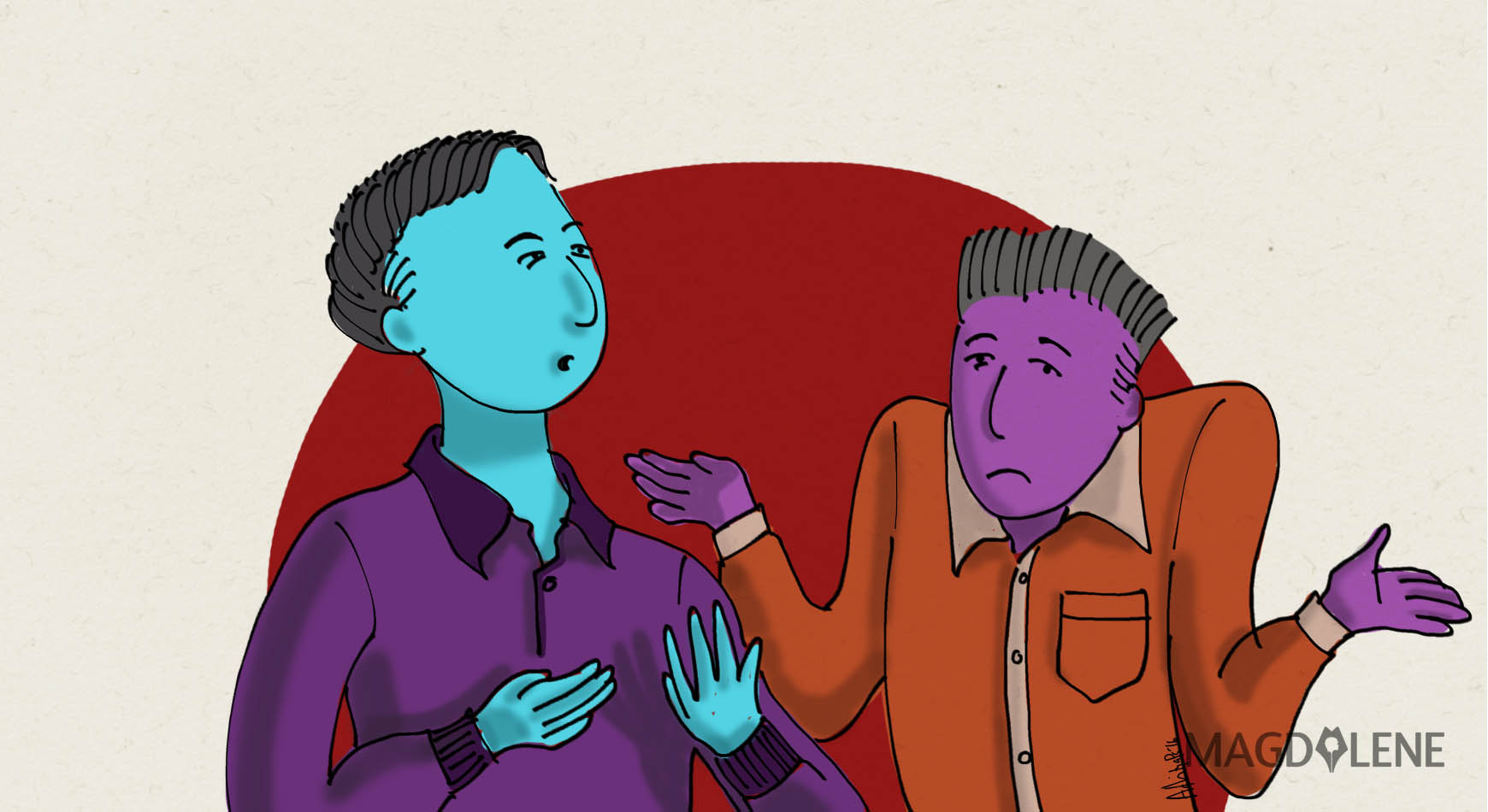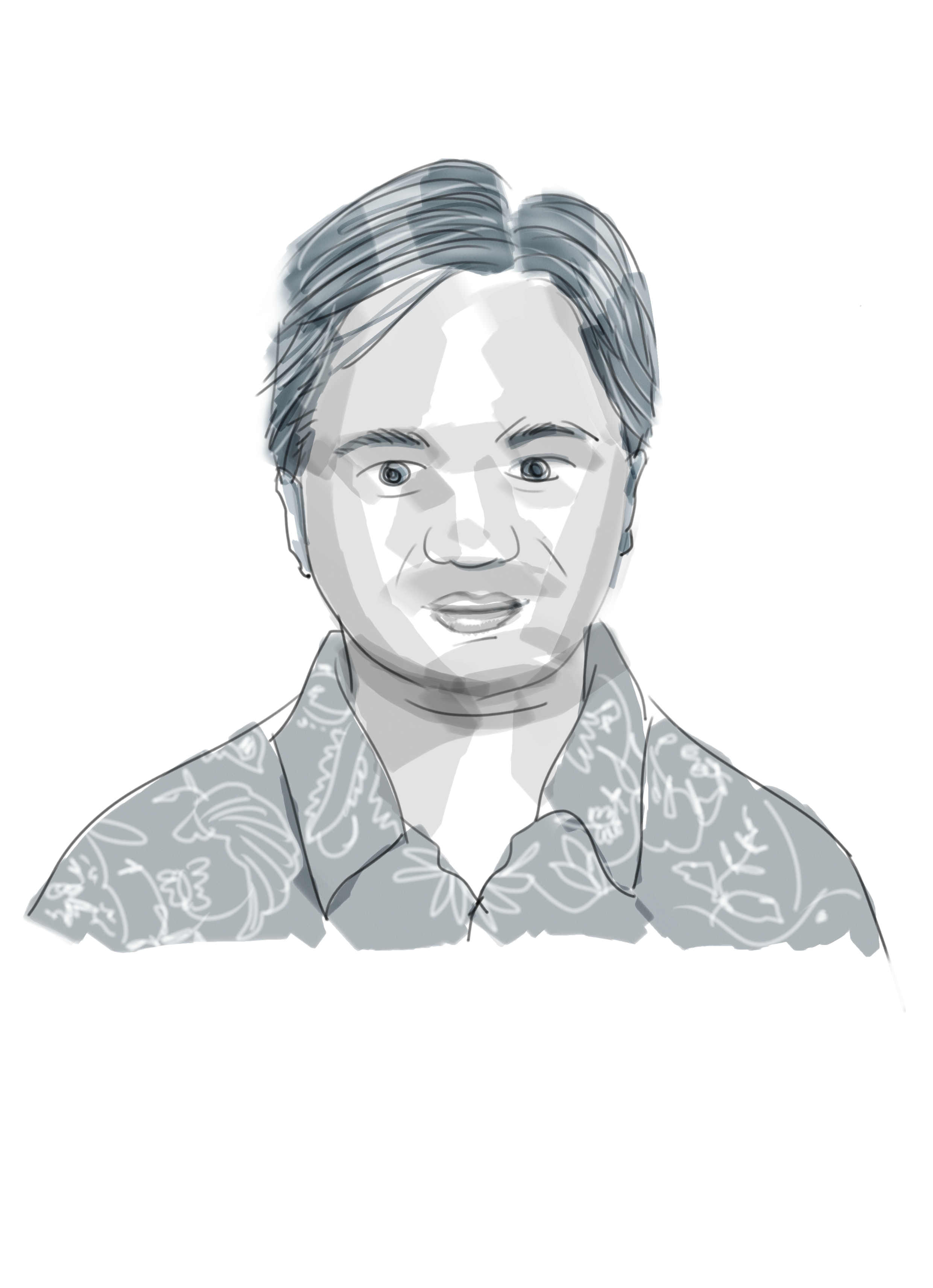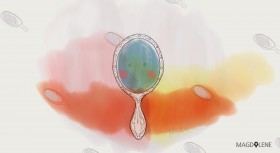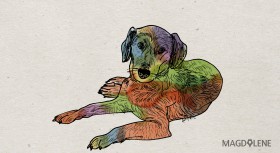For over a decade, being a Chinese-Indonesian voice has been my niche. Of course, I cannot speak for all Chinese-Indonesians, who have diverse backgrounds. We speak different dialects, we have varying knowledge of Chinese culture, and we come from different socio-economic classes.
But I felt there was still enough room for representation of Chinese-Indonesians in Indonesian media, especially as Chinese-Indonesians are generally still not comfortable to talk about their racial and cultural backgrounds. I aspired to bring forth my experience and knowledge as a minority to the general public, just like how Gary Younge wrote about being a black Briton in United States for The Guardian, and how my teacher Robert Manne (father of feminist Kate Manne) carried his Jewish identity with his evolving political views.
I am, however, not totally Chinese. My mother is partly Sundanese and partly Javanese. My father was raised in a Dutch-speaking, America-loving home. Like many other Indonesians, my primary identity was religion instead of ethnicity. Even when anti-Chinese conspiracy theories arose in mid-1990s in anticipation of Suharto’s retirement, I still saw myself firstly as a Catholic.
Millennial Chinese-Indonesians who talked about their May 98 experiences to foreign journalists and academics shared the same surprise: They always saw themselves as Indonesians, even as Javanese or Betawis, so they couldn’t understand why their parents flew them outside Jakarta as mobs were calling for their blood. May 98 was also the thing that made me aware of my Chinese identity, that my school was at risk not only because it’s a Christian school, but because the majority of the students were ethnically Chinese.
After the darkness of May 98, came the sunshine of the Reformasi, where Gus Dur encouraged the expression of Chinese-Indonesian identities and cultures, while the New Order’s ban on Chinese culture was lifted. The sudden change, along with exposure to multiculturalism in Australia, invigorated my desire to be a representative of Chinese-Indonesian youth.
There were two causes for this desire. First, May 98 is still an unsolved mystery to this day. I believe the relations between Chinese-Indonesians and other Indonesians will remain fractured as long we do not touch this issue. Second, Indonesian studies in Australian universities also cover Chinese-Indonesians – their awkward position in Indonesian society, their faiths and cultures, and their future in the 21st century.
I found it ironic that I could understand my culture better in a foreign land than in Indonesia, while more ironically, I often found myself to be the only Asian in the classroom – I became the native source not only on Indonesia and Asia but also on Chinese-Indonesians. To push the irony even further, I found it easier to talk about Chinese-Indonesians and Asian-Australians with Javanese Indonesians instead of with fellow Chinese-Indonesians.
Back in Indonesia, writing about Chinese-Indonesian identity was a side job to teaching history and English, but eventually writing became my primary work, even though no principal ever raised objection to my publication. While there was steady increase of Chinese-Indonesian entertainers, artists, journalists, and even politicians over the last decade, I felt that there is still minimum conversation regarding Chinese-Indonesian identity, both from the Indonesian majority and among Chinese-Indonesian themselves.
We also seem to live in different worlds. I wished that I would find more Chinese-Indonesians who shared my passions for books, politics, and non-fiction writing, but there are few. Christian groups seem to have become the only chosen place for Chinese-Indonesians to socialize, even sports and leisure activities are based on those church groups.
When socializing with any group, I am being honest about my biracial background. After all, Indonesians seem to be used to households of mixed religions, ethnicities, and races. Sadly, sometimes this didn’t weaken the prejudices held by Indonesians on Chinese-Indonesians, and vice versa. Too often I’ve heard “You’re different to the other Chinese” as a compliment from Indonesians, while nothing came out from other Chinese-Indonesians when I called out their racism – just awkward silence or abrupt change of topic.
Like I said, I wished that Chinese-Indonesians could explore their identities and politics like African-Americans or British Asians do, but that would seem never materialize. Even Chinese-Americans can tell their stories in Hollywood just recently, with TV series like Fresh Off the Boat, Netflix’s features of Asian-American standup comedians, and movies like Crazy Rich Asians (which progressive Asian-Americans said is incomparable to Black Panther, since CRA erases non-Chinese Singaporeans and glorifies actual inequality in Singapore).
I have realized that my pursuit to be accepted by other Chinese-Indonesians to be a major cause of my unhappiness. I have realized that the experience and passion of African-Americans and Muslim Australians in telling their stories and expressing their culture cannot be replicated by Chinese-Indonesians or other Chinese diasporas. I have understood that other Chinese-Indonesian feminists, progressives, and artists may take other angles and causes in telling their stories and in improving Indonesia.
I’m still interested to follow news on politics in Chinese-speaking nations and on Chinese diaspora worldwide. I’m still excited to see Asian-American actors playing major roles in movies and TV series. One day I might publish a novel on Chinese-Indonesian life.
But I have stopped my quest to become one of Chinese-Indonesians. I will not look for other Chinese people anymore when attending events. I will understand if progressive Indonesians and Westerners are not interested to learn more about Chinese diaspora in their countries. Getting worked up with those things, and trying (or more precisely, wishing) for changes had created heavy toll for my health in this century.
I am not going to deny my Chinese background. But I am not going to deny my Indonesian background as well. My future involves going to places where people might be unfamiliar with Chinese culture and Chinese diaspora. Taking myself as an Indonesian, rather than as a Chinese, will help me survive.
Also find out what Mario had to say about 2018 and find @MarioRustan on Twitter.









Comments